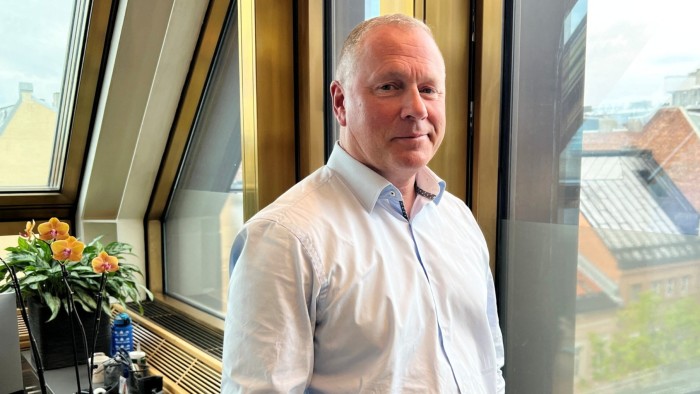Norway’s $1.8 Trillion Oil Fund Embraces AI to Slash Negotiation Costs
The Norwegian sovereign wealth fund, managing an impressive $1.8 trillion in assets, is on the verge of a groundbreaking shift in how it handles trading expenditures. By leveraging artificial intelligence, the fund aims to reduce its annual negotiation costs by one-fifth, signalling the potential of technology to revolutionize global finance.
Transforming Negotiation Strategies with AI
Nicolai Tangen, the fund’s director general, revealed to the Financial Times that the organization is set to save an astounding $400 million annually on its $2 billion negotiation costs, having already realized nearly $100 million in savings. This initiative highlights the effectiveness of AI in predicting market movements, allowing for smarter buying and selling decisions.
Harnessing Predictive Analytics for Enhanced Efficiency
“With our advanced AI programs, we can predict both our purchases and sales with greater accuracy,” Tangen stated. He elaborated on how his team can buy a business on a Monday and sell it by Friday based on index changes, showcasing the enhanced predictive capabilities of AI in financial transactions.
Position of the Norwegian Fund in Global Markets
The Norwegian Fund stands as one of the largest investors worldwide, holding an average of 1.5% stakes in companies listed on global exchanges. With over 46 million trades executed each year, optimizing these trades can yield significant savings in transaction costs and enhance profitability by minimizing discrepancies between buy and sell prices.
The Growing Adoption of AI Among Institutional Investors
Last year, a survey by Mercer indicated that 90% of investment managers had either implemented or planned to utilize AI, with two-thirds citing the motivation of reducing negotiation costs. As major investors seek to cut expenses, this trend poses challenges for traditional Wall Street banks and trading firms that serve as intermediaries.
AI Adoption on Wall Street: A Mixed Landscape
While segments of Wall Street, such as Citadel Securities and Tower Research, have quickly adopted AI technologies to streamline trading operations, institutional investors have historically been slower to embrace these methods. Many early AI projects fell short of delivering measurable results, but there is now increasing optimism surrounding their capabilities.
Implementing a Culture of Innovation
Tangen, who has recently been reappointed for a second five-year term, believes that organizational transformation is key. “There are numerous opportunities for change, and even small enhancements can have substantial impacts,” he emphasized. The fund aims to negotiate more intelligently by strategically timing trades and minimizing market disruptions.
To fully integrate AI, Tangen underscores the necessity of strong leadership: “We need a total maniac at the top advocating for this continuously and ensuring that everyone we hire is highly skilled in programming and AI literacy,” he remarked. By fostering a culture of innovation, the Norwegian Fund aims to remain at the forefront of technological advancements in finance.

